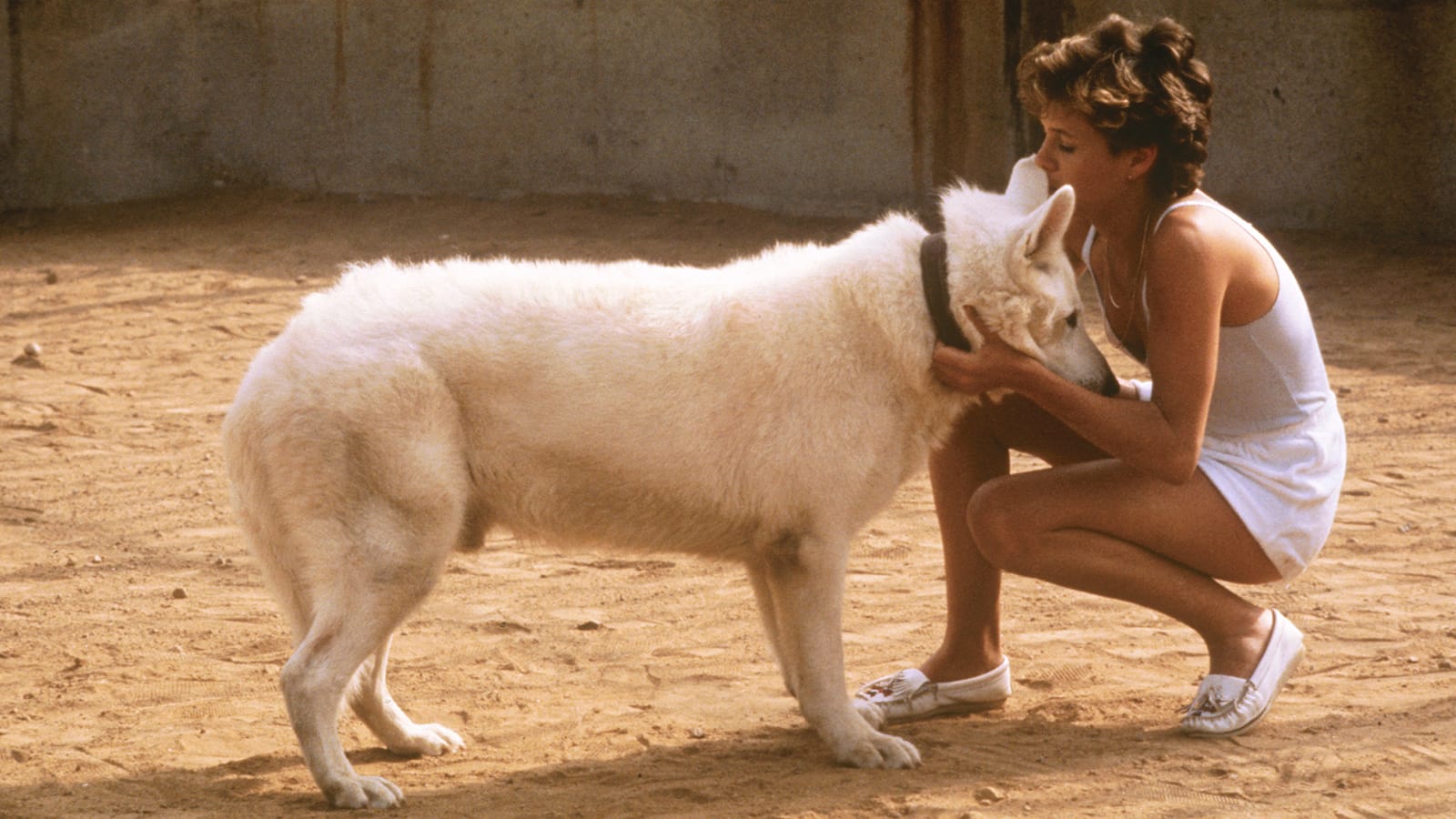White Dog

Samuel Fuller’s throat-grabbing exposé on American racism was misunderstood and withheld from release when it was made in the early eighties; today, the notorious film is lauded for its daring metaphor and gripping pulp filmmaking. Kristy McNichol stars as a young actress who adopts a lost German shepherd, only to discover through a series of horrifying incidents that the dog has been trained to attack black people, and Paul Winfield plays the animal trainer who tries to cure him. A snarling, uncompromising vision, White Dog is a tragic portrait of the evil done by that most corruptible of animals: the human being.
Special Features
- New, restored high-definition digital transfer of the uncut version, approved by producer Jon Davison
- New video interviews with producer Davison, co-writer Curtis Hanson, and Sam Fuller’s widow, Christa Lang-Fuller
- An interview with dog trainer Karl Lewis-Miller
- Rare photos from the film’s production
- English subtitles for the deaf and hard of hearing
- PLUS: New essays by critics J. Hoberman and Armond White, plus a rare 1982 interview in which Fuller interviews the canine star of the film
New cover by Eric Skillman
Special Features
- New, restored high-definition digital transfer of the uncut version, approved by producer Jon Davison
- New video interviews with producer Davison, co-writer Curtis Hanson, and Sam Fuller’s widow, Christa Lang-Fuller
- An interview with dog trainer Karl Lewis-Miller
- Rare photos from the film’s production
- English subtitles for the deaf and hard of hearing
- PLUS: New essays by critics J. Hoberman and Armond White, plus a rare 1982 interview in which Fuller interviews the canine star of the film
New cover by Eric Skillman

Cast
- Kristy McNichol
- Julie Sawyer
- Paul Winfield
- Keys
- Burl Ives
- Carruthers
- Jameson Parker
- Roland Gray
- Lynne Moody
- Molly
- Marshall Thompson
- Director
- Christa Lang
- Nurse
- Samuel Fuller
- Charlie Felton
- Hans
- Dogs
- Folsom
- Son
- Buster
- Duke
Credits
- Director
- Samuel Fuller
- Producer
- Jon Davison
- Screenplay
- Samuel Fuller
- Screenplay
- Curtis Hanson
- Based upon the story by
- Romain Gary
- Executive producers
- Edgar J. Scherick
- Executive producers
- Nick Vanoff
- Cinematography
- Bruce Surtees
- Production design
- Brian Eatwell
- Editing
- Bernard Gribble
- Music
- Ennio Morricone
- Dogs trained by
- Animal Action: Karl Lewis Miller












